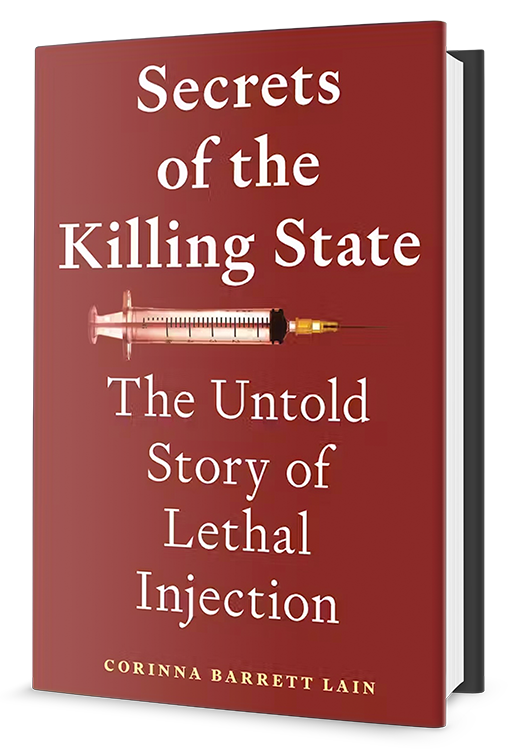Corinna Barrett Lain's new book shows that many problems with lethal injection. She briefly references nitrogen gas, including this latest panacea's botched introduction.
Professor Lain is morally against the death penalty (her acknowledgments quote the Bible for her motivation in writing the book), while history also suggests the government cannot be trusted. Elsewhere, she argues the firing squad is the best of the available options:
When asked what the most humane way to execute someone would be, Lain’s answer is the firing squad. “Death by firing squad is nearly instantaneous,” she says. “That’s certainly better than being electrocuted for five or six minutes or being gassed to death for six to 10 minutes or being slowly suffocated under a veneer of peacefulness for 10 to 20 minutes.”
The book, however, shows how the public rather provides the image of civility:
“The firing squad is too honest, too explicit about what the death penalty is. People tend to think it’s barbaric and archaic,” Lain said, adding: “In that way, it may start some very important, and long overdue conversations about the death penalty in this country.”
Justice Sotomayor's dissent in Glossip (Breyer's dissent regarding delays again will arise with Rogers, caught nearly thirty years ago) also notes that capital defendants might want to use this option over lethal injection. She leaves open the possibility that it would violate the Eighth Amendment as to "visible brutality."
The South Carolina Supreme Court upheld the firing squad in its recent "find ways to deal with lack of execution drugs" legislation. Two justices dissented on state constitutional grounds. One found it "unusual" (the state constitution bans cruel or unusual punishments) while the other also found it "cruel." The question would remain whether it is more cruel than lethal injection.
Lain summarizes: "states have sacrificed not only their professed commitment to humane executions, but also important values--government transparency, regulatory compliance, freedom of contract,* respect for the rule of law, and the utmost care in the most solemn of duties."
She briefly shows how the state screwed up carrying out nitrogen gas executions, So, Lain would not be surprised that South Carolina appears be having difficulty with the firing squad. Involuntary homicide, as compared to euthanasia (of pets or humans), is going to be hard no matter what.
Back to Glen Rogers:
Justices, in a 26-page unanimous opinion, rejected arguments including that “newly discovered” evidence about sexual abuse and trafficking that Rogers suffered as a child should spare him from being executed Thursday.
The court also turned down an argument that using the state’s lethal injection procedure on Rogers likely would violate the U.S. Constitution’s Eighth Amendment ban on cruel and unusual punishment. That argument was based on Rogers having a medical condition known as porphyria and the potential interaction with etomidate, a sedation drug used in the procedure.
Professor Lain's book briefly addresses the failures of etomidate, which Florida alone uses. The court rejected the evidence as "new." Trying old arguments in new skins might help explain how this thing was drawn out so long.
(The Supreme Court turned down a final appeal without comment.)
The fact that people who murder, including a "Casanova killer" who was convicted of two murders and suspected of many more, have are generally screwed up is well known. The general answer is that lots of people are screwed up. Not as many are murderers.
Glen Rogers' execution has issues. It took too long, the execution protocol is dubious, and there are some doubts that he is so guilty without mitigating circumstances to warrant execution. Another far from sympathetic person whose execution leaves something to be desired.
Florida executed him all the same. He decided to end things (after saying other stuff) with pro-Trump bit.
==
* Drug companies have strenuously refused to supply drugs for executions. They have supplied drugs with contractual obligations to not do so.
States have used many dodges, some blatant violations of contractual agreements, to get around such contractual obligations.


No comments:
Post a Comment
Thanks for your .02!